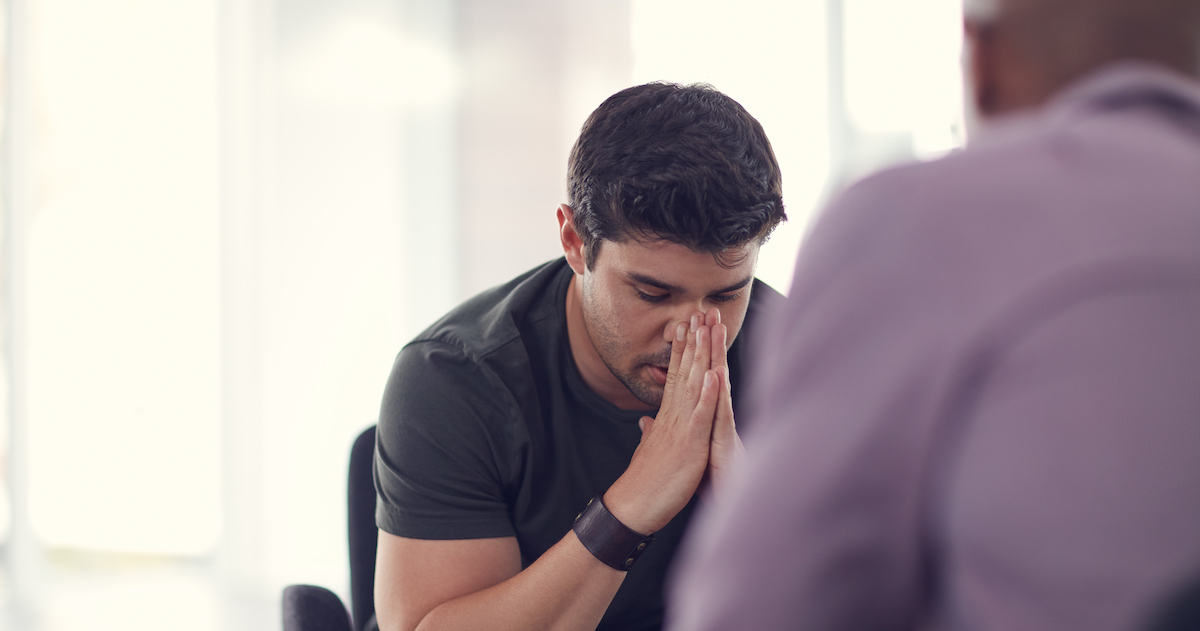In the meeting and event industry, we tend to talk about women’s issues far more regularly than those of our male counterparts. Why is that? Is it because females dominate the industry? Or is it because the conversation around mental health is different for men as compared to women?
There are many different reasons why men are less likely to speak up about mental health problems. Most of these reasons stem from society and the stigma it places around masculinity.
Mental health continues to be a taboo subject for many men. Societal and cultural norms of gender conformity to be “strong” and “tough” can put pressure on men, making it difficult to admit they are struggling with their mental health and to seek help.
Men tend to keep so much bottled up inside, including traumas and heartbreaking moments. Eventually, there has to be a release. And, too often, that is in an explosive way. When you are told that it is not appropriate to talk about your feelings, when you have limits placed on what is OK and what isn’t OK to talk about, when you are expected (or when you expect yourself) to just shut up and deal with it, the consequences can be deadly.
Good mental health is as important as physical health. It’s as important as oxygen. We all need it to survive.
Recently I had the opportunity to chat with a colleague of mine in the event industry who shared a sensitive story with me. He had been working under a woman who was his superior and who had gone through a bad divorce. She often brought the pain of her experience to work and one day my friend took her out for a drink to listen and calm her down and let her know that he felt empathy for her. About a year or so later, my friend was struggling with his own mental health and her recommendation to him was to suck it up and shut up. This is why our society needs far more empathy, kindness and a caring culture of human beings who have educated themselves through peer support programs. Learning how to speak to a man who is going through a difficult time is an authentic way to show someone that he is not alone. No one is suggesting that you be their therapist, clinician or psychiatrist, but to navigate people, you have to start by being mindful and knowing how to ask if someone is OK.
Good mental health is as important as physical health. It’s as important as oxygen. We all need it to survive.
The Event Minds Matter community has launched a new initiative and goal to support men in the event ecosystem, because they suffer just like women do. To bring clarity, experience and dedication to this initiative, we have welcomed some very knowledgeable and dedicated men to host this subject matter through live videos and content. Their combined strengths and backgrounds make them the perfect liaison to those in the industry who suffer in silence and have no support or anyone to speak to. You will meet all of them soon.
As I began my research into men’s mental health, I came across some statistics that gave credibility to this discussion and why our community felt that it was time to rip off the bandage to reveal some truths.
WHAT WE NEED TO KNOW
Across the globe, among many races, ethnicities and income brackets, males often avoid getting help for their psychological issues.
According to the World Health Organization (WHO), males die by suicide at twice the rate of females. And high-income countries have the highest suicide rates among males. In the U.S., males make up nearly 80% of all deaths by suicide, according to the Centers for Disease Control and Prevention (CDC).
Mental health professionals diagnose depression more often in women than in men, according to the nonprofit Mental Health America. At the same time, the organization adds, more than 6 million U.S. men experience symptoms of depression annually—and most go undiagnosed.
Situational stressors also play a major role in suicide deaths among males, many of whom do not have a documented mental health history, according to a 2021 analysis from the CDC.
Given the prevalence of mental health issues and the dangers of ignoring them, it is important to identify common barriers men face when seeking help.
These stressors can include anything from relationship troubles to arguments, but all indicate a need for support during stressful transitions.
Men are less likely than women to receive formal mental health support of any kind.
The National Institute on Alcohol Abuse and Alcoholism puts the annual number of U.S. men dying due to alcohol-related causes at 62,000, compared to 26,000 women.
Men don’t always show the signs we often associate with depression...like sadness and hopelessness. Instead, they might appear angry or aggressive. This makes it difficult to see that something is wrong. As a result, men might miss out on the treatment they need to feel better.
Given the prevalence of mental health issues and the dangers of ignoring them, it is important to identify common barriers men face when seeking help. Here are some of the stigmas that men face that hinder them from seeking help.
Stigma:
Crying is for children
Men don’t break down
Strong men don’t have emotional problems
Men don’t show their insecurities
Real men shouldn’t need therapy or medication
Men don’t ask for help
Over the last few years, there have been sports, media, musicians, businessmen and actors who have had the courage to come out with their truth, providing a path for others to get comfortable with their voice. This, in and of itself, is a start to talking about this in our industry and getting everyone educated on how to speak to people who struggle with stress, overwhelm and burnout leading to more serious problems that have devastating effects.
BREAKING THE STIGMA MEANS FINDING SOLUTIONS
Goals. Set realistic goals and prioritize tasks.
Support. Seek out emotional support from a partner, colleague, family or friends. Learn strategies for making social connections so that you can get involved in social activities.
Coping. Learn ways to manage stress, such as meditation and mindfulness, and develop problem-solving skills.
Decisions. Delay making important decisions, such as changing jobs, until your depression symptoms improve.
Activities. Engage in activities you typically enjoy, such as ball games, fishing or a hobby.
Health. Try to stick to a regular schedule and make healthy lifestyle choices, including healthy eating and regular physical activity, to help promote better mental health.
As a society, we have created the narrative that men need to be “macho,” emotionless and unaffected by mental illness. But if we want to change this narrative, then we have to build brave spaces to amplify the conversations that men are struggling to have.
Event Minds Matter is committed to shedding light on the issues that have been buried for decades. Inherently, we all have what we need internally—or so we think—to support ourselves. Our community gives access to education, resources and tools that enable males and females to find the potential in learning and establishing new perspectives in a safe space. We invite all men, no matter what gender, race, culture, denomination or other, to join us in finding the key that opens the door to honest conversations that are healing, authentic and purposeful.


